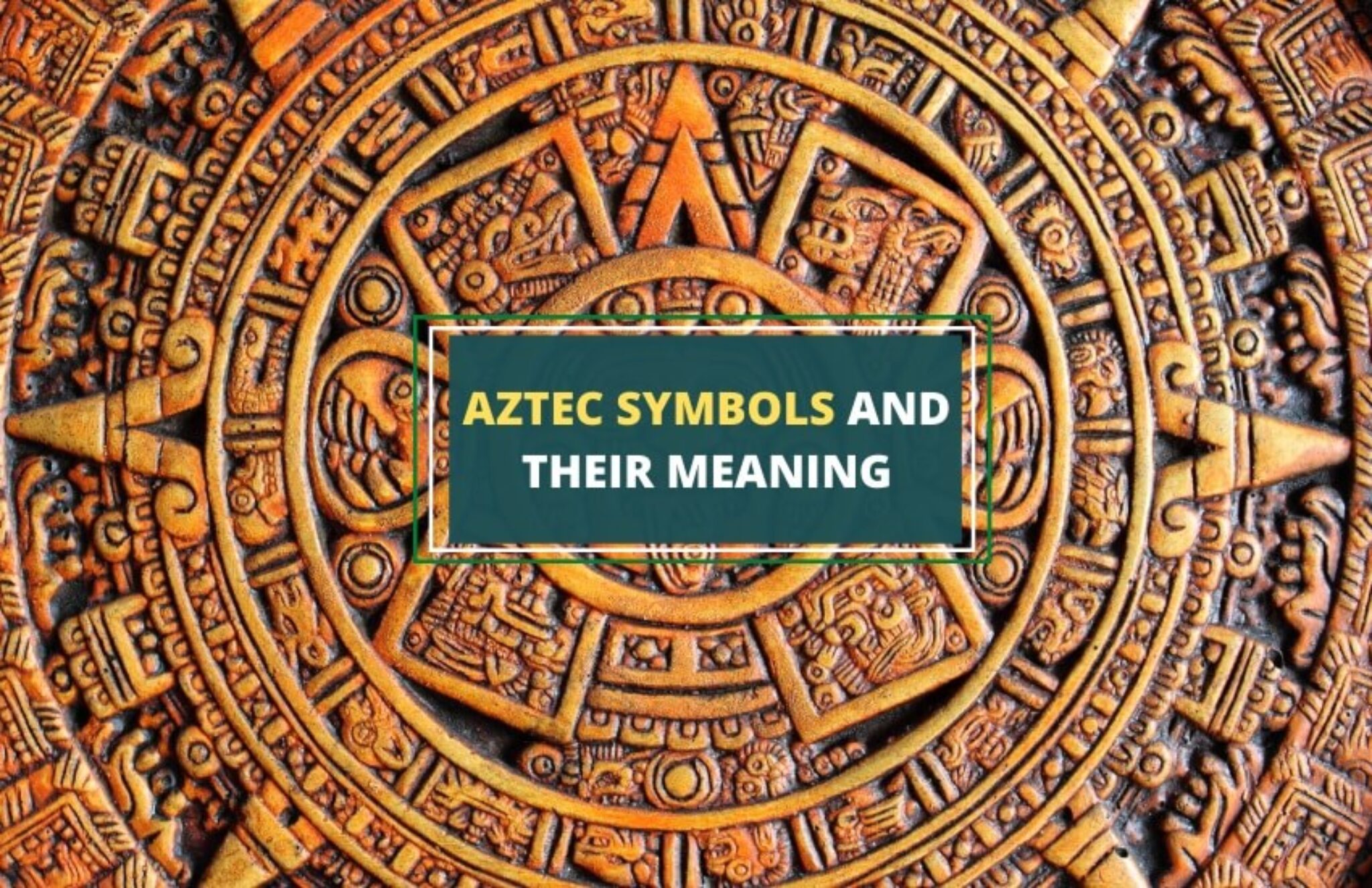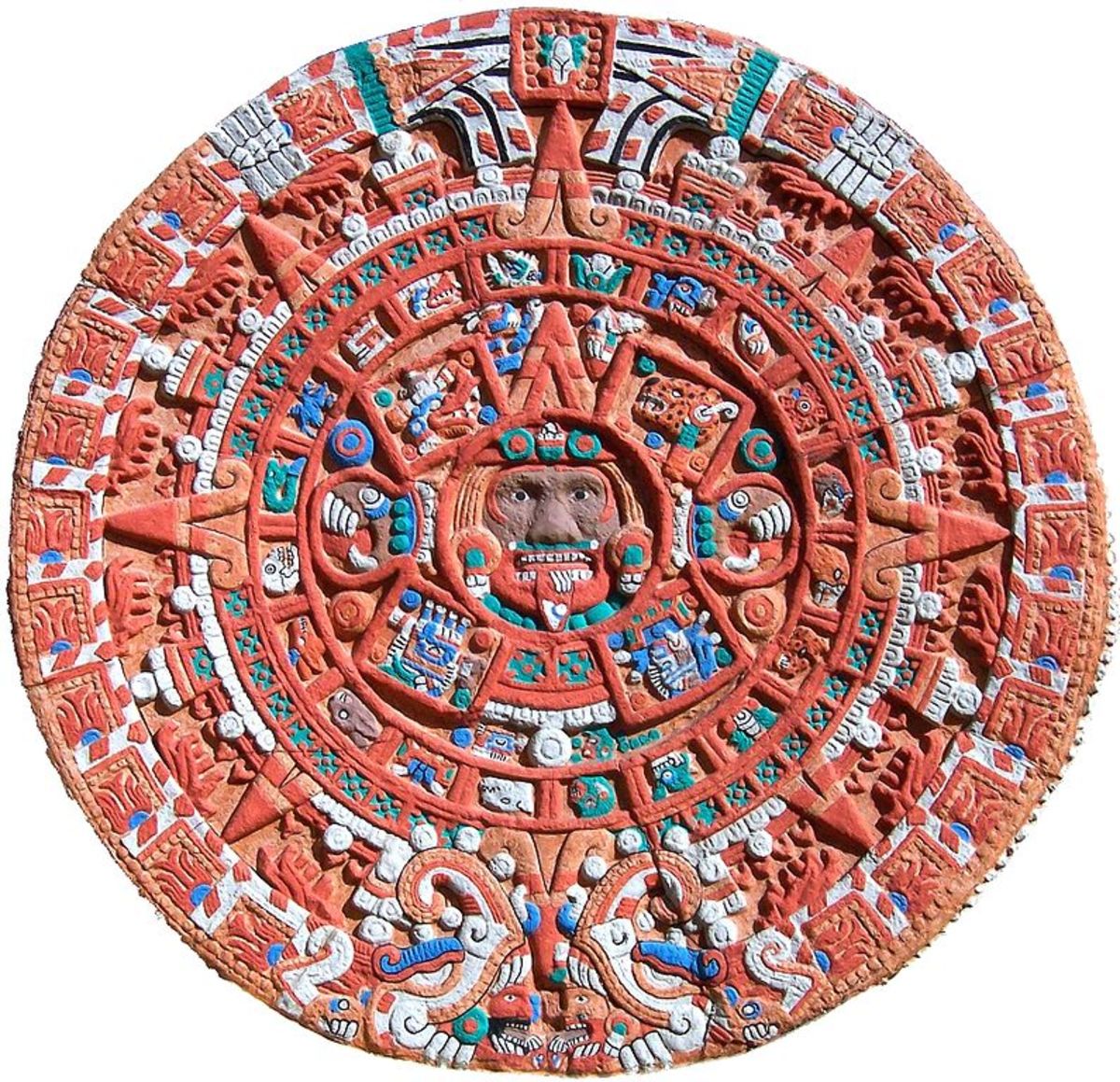Aztec Name Meaning
Aztec names are rich in meaning and symbolism, reflecting the culture and beliefs of the Aztec people. Typically composed of two or more elements, these names often reference natural phenomena, deities, or personal qualities. For example, the name "Cuauhtmoc" means "swooping eagle," while "Moctezuma" translates to "lord who gets angry." Aztec names were not merely labels but carried deep significance, shaping an individual's identity and place within society.
Beyond their cultural significance, Aztec names offer a glimpse into the history and traditions of the Aztec civilization. By studying these names, researchers and historians can gain insights into the language, beliefs, and social structure of this ancient society.
Aztec Name Meaning
Aztec names are rich in meaning and symbolism, reflecting the culture and beliefs of the Aztec people. Here are seven key aspects that explore various dimensions related to Aztec name meaning:
- Historical Significance: Aztec names provide insights into the history and traditions of the Aztec civilization.
- Cultural Symbolism: Names often reference natural phenomena, deities, or personal qualities, reflecting Aztec beliefs and values.
- Composition: Typically composed of two or more elements, Aztec names exhibit a unique structure and grammar.
- Identity and Status: Names played a crucial role in shaping an individual's identity and place within Aztec society.
- Gender Distinctions: Aztec names often exhibited gender-specific elements, reflecting societal norms and expectations.
- Religious Significance: Deities and religious concepts frequently influenced the choice and meaning of Aztec names.
- Linguistic Insights: Studying Aztec names contributes to our understanding of the Nahuatl language and its evolution.
These aspects are interconnected and provide a comprehensive understanding of Aztec name meaning. For example, the name "Cuauhtemoc" not only signifies "swooping eagle" but also embodies the cultural significance of the eagle as a symbol of strength and courage. Similarly, the name "Moctezuma" reflects the historical importance of the Aztec emperor who bore this name.
Historical Significance
Aztec names are not merely personal identifiers but valuable historical records that provide insights into the culture, beliefs, and traditions of the Aztec civilization. By studying the meanings and origins of these names, researchers and historians can reconstruct aspects of Aztec society that might otherwise be lost to time.
For example, the name "Moctezuma" is not only the name of the famous Aztec emperor but also a reflection of the historical significance of the position itself. The name means "lord who gets angry," indicating the emperor's power and authority. Similarly, the name "Cuauhtemoc," meaning "swooping eagle," evokes the cultural significance of the eagle as a symbol of strength and courage, qualities highly valued by the Aztecs.
Understanding the historical significance of Aztec names is crucial for comprehending the nuances of Aztec culture and society. By delving into the meanings and origins of these names, we gain a deeper appreciation for the rich history and traditions of this ancient civilization.
Cultural Symbolism
The connection between cultural symbolism and Aztec name meaning is deeply intertwined. Aztec names often referenced natural phenomena, deities, or personal qualities, reflecting the beliefs and values that permeated Aztec society.
For instance, the name "Cuauhtemoc" ("swooping eagle") embodies the cultural significance of the eagle as a symbol of strength, courage, and leadership. The name "Moctezuma" ("lord who gets angry") reflects the power and authority associated with the Aztec emperor.
Understanding this cultural symbolism is crucial for comprehending the nuances of Aztec name meaning. By delving into the meanings and origins of these names, we gain a deeper appreciation for the rich tapestry of Aztec beliefs and values.
Composition
The composition of Aztec names unveils a unique structure and grammar that provides valuable insights into Aztec name meaning. Understanding these elements helps us decipher the rich symbolism and cultural significance embedded within Aztec names.
- Compound Structure
Aztec names are commonly composed of two or more elements, each carrying its own meaning. These elements are combined to create a unique and personalized name.
- Symbolic Elements
The elements used in Aztec names often hold symbolic meanings. Animals, plants, natural phenomena, and deities are frequently incorporated to convey specific qualities or aspirations.
- Gendered Structure
Aztec names often exhibit gender-specific elements. Certain elements or combinations are traditionally associated with male or female names, reflecting societal norms and expectations.
- Historical Influences
The composition of Aztec names evolved over time, influenced by historical events and interactions with other cultures. This evolution provides insights into the changing beliefs and values of Aztec society.
By unraveling the composition of Aztec names, we gain a deeper understanding of the cultural, historical, and symbolic significance embedded within them.
Identity and Status
The connection between "Identity and Status" and "Aztec Name Meaning" lies in the profound influence that names held in Aztec society. Names were not merely labels but powerful symbols that shaped an individual's identity, status, and place within the social hierarchy.
Aztec names often carried specific meanings that reflected the parents' hopes and aspirations for their child. For example, a child born during a time of war might be given a name meaning "strong warrior," while a child born during a period of peace might be given a name meaning "peaceful dove." Names could also indicate a person's occupation or social status. For example, a priest might have a name meaning "keeper of the sacred knowledge," while a farmer might have a name meaning "cultivator of the land."
The practical significance of understanding this connection lies in the insights it provides into the social structure and values of Aztec society. By studying the names of individuals, researchers can gain a better understanding of the roles and responsibilities that people held within their communities. Additionally, the study of Aztec names can shed light on the cultural beliefs and practices that shaped Aztec society.
Gender Distinctions
In Aztec culture, names were not gender-neutral. They carried specific elements that indicated the gender of the individual. Understanding this facet of Aztec name meaning provides valuable insights into the societal norms and expectations that shaped Aztec society.
- Masculine Names
Aztec masculine names often incorporated elements related to strength, power, and warfare. Names such as Cuauhtmoc ("swooping eagle") and Tlacaelel ("man who guides") reflected the warrior spirit and leadership qualities valued in Aztec society.
- Feminine Names
Aztec feminine names frequently included elements associated with beauty, fertility, and domesticity. Names such as Xochitl ("flower") and Atl ("water") symbolized the grace and nurturing qualities expected of Aztec women.
- Gender-Neutral Names
While most Aztec names were gender-specific, a few names could be used for both males and females. These names often carried meanings related to nature or deities, such as Citlalli ("star") and Tezcatlipoca ("smoking mirror").
- Implications for Aztec Society
The gender distinctions in Aztec names reflect the clearly defined gender roles and expectations within Aztec society. Masculine names emphasized strength and leadership, while feminine names highlighted beauty and domesticity. This naming system reinforced the social norms and cultural values that governed Aztec society.
Understanding the connection between gender distinctions and Aztec name meaning deepens our knowledge of the societal structure and cultural norms that shaped this ancient civilization.
Religious Significance
Within the realm of Aztec name meaning, religious significance played a profound role. The Aztecs held a deep reverence for their deities and religious beliefs, which heavily influenced the names they bestowed upon their children.
- Deity Names
Many Aztec names were directly derived from the names of Aztec deities. Children named after deities were believed to possess the qualities and protection of that particular god or goddess.
- Religious Concepts
Aztec names often incorporated elements related to religious concepts and beliefs. Names such as "Tlaloc" (rain god) and "Quetzalcoatl" (feathered serpent) reflected the importance of these concepts in Aztec religion.
- Spiritual Meanings
Some Aztec names carried spiritual meanings and aspirations. Names like "Ometeotl" (dual god) and "Tezcatlipoca" (smoking mirror) conveyed a connection to the divine and the spiritual realm.
- Influence on Society
The religious significance of Aztec names influenced society in several ways. It reinforced religious beliefs, strengthened the bond between individuals and their deities, and provided a sense of identity and belonging within the community.
Understanding the religious significance of Aztec names offers a deeper insight into the spiritual and cultural fabric of Aztec society. By exploring the connections between deities, religious concepts, and name meanings, we gain a richer appreciation for the beliefs and values that shaped this ancient civilization.
Linguistic Insights
Exploring the connection between Aztec name meaning and linguistic insights unveils a rich tapestry of knowledge and understanding. Aztec names provide invaluable clues to the structure, grammar, and evolution of the Nahuatl language, the primary language spoken by the Aztec civilization.
By analyzing the composition and patterns within Aztec names, linguists can deduce grammatical rules, identify phonetic changes, and reconstruct aspects of the Nahuatl language that might otherwise be lost. For example, studying the different elements used in Aztec names reveals insights into Nahuatl morphology, the study of word formation and structure. Additionally, examining the evolution of Aztec names over time provides clues to the historical development of the Nahuatl language.
The practical significance of this understanding lies in its contribution to our knowledge of Mesoamerican history and culture. Through the study of Aztec names, researchers can gain insights into the social structure, religious beliefs, and cultural values of the Aztec civilization. Furthermore, this understanding aids in the revitalization and preservation of Nahuatl, an indigenous language still spoken by communities in Mexico today.
FAQs about Aztec Name Meaning
This section provides answers to frequently asked questions about Aztec name meaning, offering insights and dispelling common misconceptions.
Question 1: What is the significance of Aztec names?
Aztec names were not merely labels but held deep cultural, historical, and religious significance. They reflected the beliefs, values, and aspirations of Aztec society.
Question 2: How were Aztec names typically composed?
Aztec names were often composed of two or more elements, each carrying its own meaning. These elements could reference natural phenomena, deities, personal qualities, or historical events.
Question 3: Did Aztec names differ based on gender?
Yes, Aztec names often exhibited gender-specific elements. Masculine names typically conveyed strength and leadership qualities, while feminine names often reflected beauty and domesticity.
Question 4: What role did religion play in Aztec name meaning?
Religion played a significant role in Aztec name meaning. Many names were directly derived from the names of deities or incorporated religious concepts and beliefs.
Question 5: Can studying Aztec names provide insights into the Nahuatl language?
Yes, studying Aztec names contributes to our understanding of the Nahuatl language. Aztec names provide valuable clues to the structure, grammar, and evolution of Nahuatl.
Question 6: What is the importance of understanding Aztec name meaning?
Understanding Aztec name meaning is crucial for gaining insights into Aztec culture, history, and belief systems. It also aids in the revitalization and preservation of Nahuatl, an indigenous language still spoken today.
These FAQs provide a deeper understanding of Aztec name meaning and its significance in Aztec culture and history.
Continue to the next section for further exploration.
Tips on Aztec Name Meaning
Exploring Aztec name meaning offers valuable insights into the culture, history, and beliefs of the Aztec civilization. Here are five tips to enhance your understanding:
Tip 1: Delve into Historical ContextComprehending the historical context of Aztec names is crucial. Each name reflects the time period, societal norms, and cultural influences that shaped its meaning. Researching Aztec history and culture provides a deeper understanding of the significance behind the names.Tip 2: Understand Cultural Symbolism
Aztec names are rich in cultural symbolism. They often reference natural elements, deities, animals, and personal qualities. By exploring the symbolism associated with each element, you gain insights into the values and beliefs that guided Aztec society.Tip 3: Analyze Name Composition
Aztec names are typically composed of two or more elements. Analyzing the individual elements and their combinations helps unravel the intended meaning and significance. This approach sheds light on the linguistic structure and grammatical rules of the Nahuatl language.Tip 4: Explore Religious Connections
Religion played a significant role in Aztec life, and this is reflected in their names. Many names are directly derived from deities or incorporate religious concepts. Understanding the Aztec pantheon and belief system enhances your comprehension of name meanings.Tip 5: Consider Gender Distinctions
Aztec names often exhibit gender-specific elements. Certain elements and combinations are traditionally associated with male or female names. Recognizing these distinctions provides insights into the gender roles and expectations within Aztec society.
These tips provide a solid foundation for exploring the intricacies of Aztec name meaning. By applying these principles, you gain a deeper appreciation for the cultural, historical, and linguistic significance of Aztec names.
Remember, Aztec names are not merely labels but windows into the past, reflecting the rich tapestry of an ancient civilization.
Conclusion
Our exploration of Aztec name meaning has unveiled the profound cultural, historical, and linguistic significance embedded within these names. They are not merely labels but mirrors reflecting the beliefs, values, and aspirations of Aztec society.
Through the analysis of Aztec names, we have gained insights into the structure and evolution of the Nahuatl language. The composition and symbolism of these names provide clues to the social hierarchy, gender roles, and religious beliefs of the Aztecs. Understanding these meanings deepens our appreciation for the intricate tapestry of an ancient civilization.
As we continue to explore the realm of Aztec name meaning, we uncover a rich source of knowledge that connects us to the past and enriches our understanding of human history and cultural diversity.
Jerry Taft Net Worth
No Man's Sky Most Expensive Item
Cute Things To Say To Boyfriend

Ancient Aztec Symbols Understanding Their Meaning

Cool and Powerful Aztec Names With Meaning

Aztec Calendar Symbols
ncG1vNJzZmisn6jAb67LqJlnm5%2Bnsm%2FDyKebqK%2BjY7umwI6coKedp6iAcK3ZrZycZZ6WuqZ5zJ6Yp6GenHupwMyl